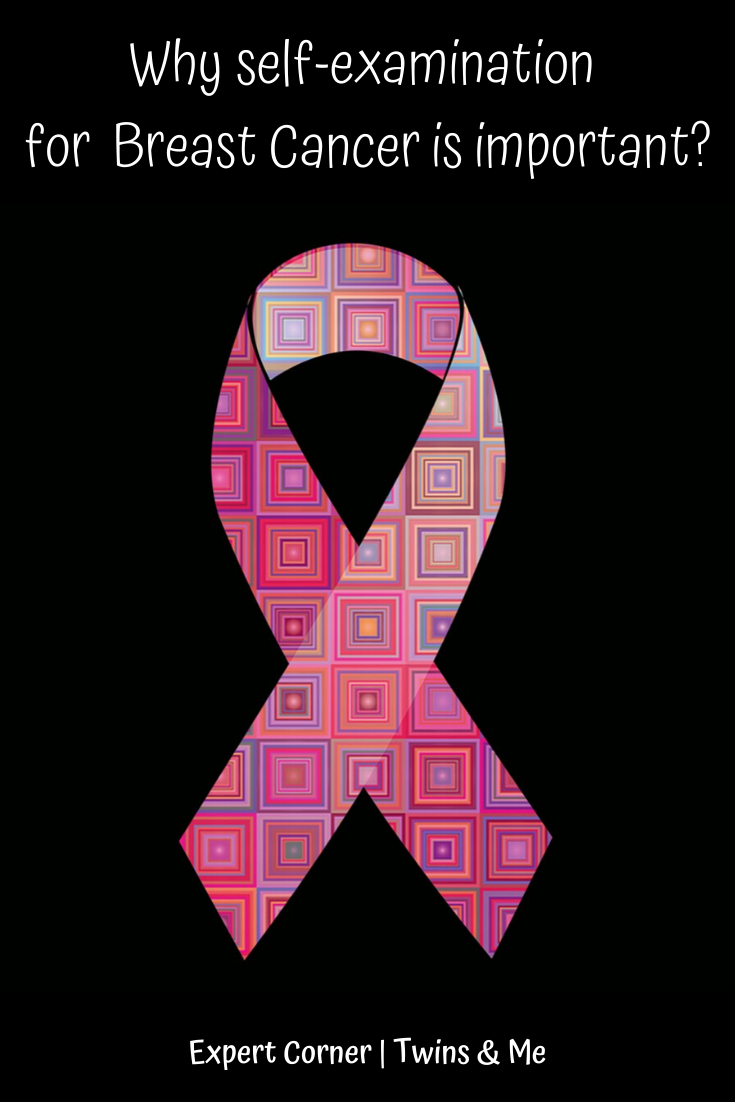Breast cancer is the most common cancer in women and the second most common cancer overall. Recent data show that one in 22 women develop breast cancer and one out of two dies because of the disease. The high mortality rate is due to the lack of awareness about Breast Cancer and the delay in screening and diagnosis process. There is an increase in the incidence of breast cancer in younger age groups (30’s and 40’s) as well. This situation is alarming. Still, there is one way we can have some control over the early detection of Breast Cancer. Yes, self-examination for breast cancer plays a crucial role in the diagnosis and treatment thereby reducing the aggressiveness of the disease and the mortality rate.
Lack of Awareness about Breast Cancer
Breast cancer is the most common cancer in Indian cities accounting for nearly 27% of all cancers in women. It is the second most common cancer in rural areas.
More than 50% of breast cancer patients in India are identified and diagnosed when they are already suffering at stages 3 and 4, where the chances of survival are extremely low.
Women should be aware of the risk factors, how to self-examine their breasts and which symptoms need immediate medical attention.
Spreading this awareness about breast cancer to all the women will help to diagnose the disease at an earlier stage.
Who is at Risk for Breast Cancer?
Though any women can be diagnosed for breast cancer there are six factors which can highly impact the occurrence of breast cancer. Let’s check them out.
1. Age
The risk of breast cancer increases as women age. The older a woman is, the more likely she is to get breast cancer. Doctors most often diagnose breast cancer in women aged between 55 to 64 years.
2. Genetics
Women who carry certain mutations in the BRCA1 and BRCA2 genes have a higher chance of developing breast cancer. People inherit these genes from their parents.
If you are a woman and any of your close relatives are diagnosed or there is a family history of breast cancer due to BRCA1 or BRCA2 genes then you are advised to do a self-examination for breast cancer yourself regularly.
3. Estrogen exposure
Exposure to estrogen appears to increase the risk of breast cancer. It could be due to a person starting their periods earlier or entering menopause at a later than average age. Between these times, estrogen levels are higher.
Breastfeeding, especially for over 1 year, appears to reduce the chance of developing breast cancer. This is possibly due to the drop in estrogen exposure that follows pregnancy and breastfeeding.
Read: What is in Breast Milk and Why is it important for your Baby?
4. Alcohol consumption
A higher rate of regular alcohol consumption is more likely to play a role in breast cancer development. Alcohol can increase the levels of estrogen and damage the DNA in cells. A woman who takes alcohol regularly is at a greater risk for breast cancer than a non-alcoholic woman.
5. Hormone treatments
Studies have shown that oral contraceptives may slightly increase the risk of breast cancer. Other studies have found that hormone replacement therapy (HRT), specifically estrogen-progesterone therapy (EPT), is related to an increased risk of breast cancer.
6. Bodyweight
Women who become overweight or develop obesity even after menopause may also have a higher chance of developing breast cancer. This could be possibly due to increased estrogen levels.
Self-examination for Breast Cancer
All women, especially those who fall under the above said risk categories should self-examine themselves regularly.
Self-examination for breast cancer is the only way to identify an earlier stage before the symptoms develop.
Refer the picture below to know how to do a self-examination for breast cancer, the symptoms that need attention, the diagnostics steps and treatment for breast cancer.

How can you help?
We must teach breast-screening as compulsory for all the women. Detecting Breast Cancer earlier is very important. You can talk to more people and spread the word about breast cancer, the importance of breast screening and early detection.
Looking out for symptoms regularly and learning about self-tests and examining their breasts at specific time intervals on their own is what all women can do to identify and control the increasing stage of these tumours. Let’s act before it is too late.
As a first step, you can share this post and create awareness about self-examination for breast cancer to your dear ones.
You can also post your queries in the comments section, I will answer them as early as possible.
Pin this for Later



